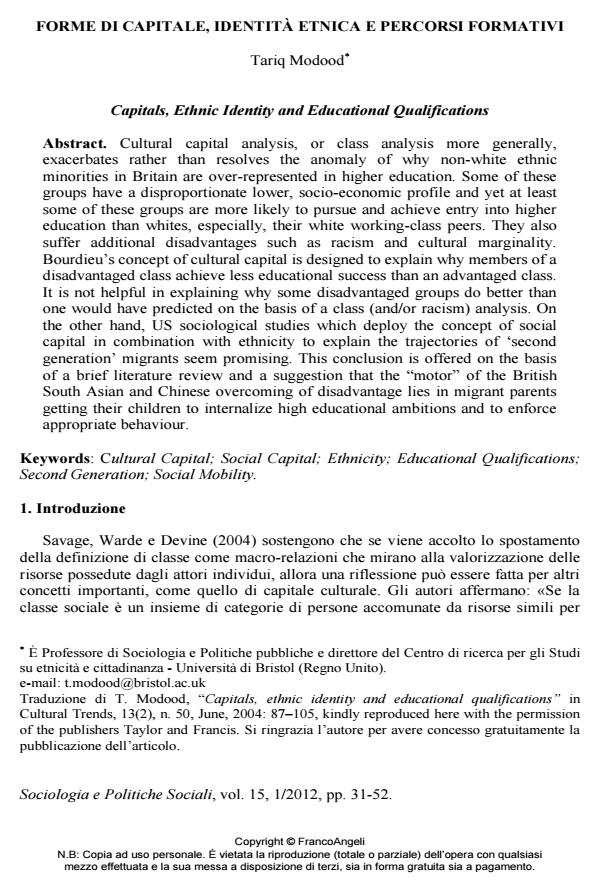Capitals, Ethnic Identity and Educational Qualifications
Journal title SOCIOLOGIA E POLITICHE SOCIALI
Author/s Tariq Modood
Publishing Year 2012 Issue 2012/1
Language Italian Pages 22 P. 31-52 File size 441 KB
DOI 10.3280/SP2012-001003
DOI is like a bar code for intellectual property: to have more infomation
click here
Below, you can see the article first page
If you want to buy this article in PDF format, you can do it, following the instructions to buy download credits

FrancoAngeli is member of Publishers International Linking Association, Inc (PILA), a not-for-profit association which run the CrossRef service enabling links to and from online scholarly content.
Cultural capital analysis, or class analysis more generally, exacerbates rather than resolves the anomaly of why non-white ethnic minorities in Britain are over-represented in higher education. Some of these groups have a disproportionate lower, socio-economic profile and yet at least some of these groups are more likely to pursue and achieve entry into higher education than whites, especially, their white working-class peers. They also suffer additional disadvantages such as racism and cultural marginality. Bourdieu’s concept of cultural capital is designed to explain why members of a disadvantaged class achieve less educational success than an advantaged class. It is not helpful in explaining why some disadvantaged groups do better than one would have predicted on the basis of a class (and/or racism) analysis. On the other hand, US sociological studies which deploy the concept of social capital in combination with ethnicity to explain the trajectories of ‘second generation’ migrants seem promising. This conclusion is offered on the basis of a brief literature review and a suggestion that the "motor" of the British South Asian and Chinese overcoming of disadvantage lies in migrant parents getting their children to internalize high educational ambitions and to enforce appropriate behaviour.
Keywords: Cultural Capital; Social Capital; Ethnicity; Educational Qualifications; Second Generation; Social Mobility.
Tariq Modood, Forme di capitale, identità etnica e percorsi formativi in "SOCIOLOGIA E POLITICHE SOCIALI" 1/2012, pp 31-52, DOI: 10.3280/SP2012-001003